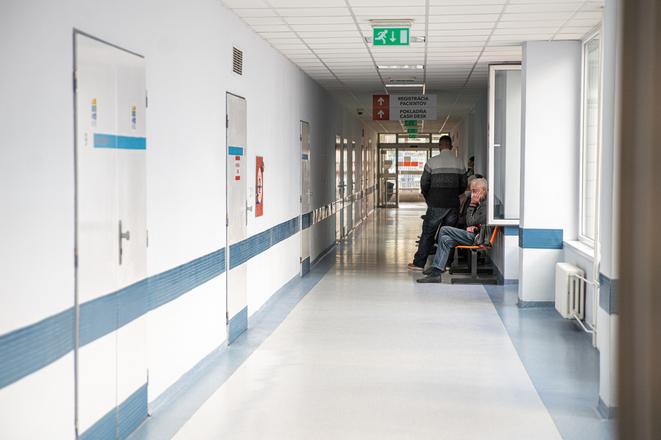Miroslav Beblavý is a former Slovak lawmaker who currently serves as a scientific coordinator for the European Network of Experts on Education Economics and guest lectures at Sciences Po.
The fourth government of Robert Fico is doing a lot of things that put its existence, or at least its fitness at risk. A reckless attack on the rule of law coupled with the fact that in practice, a petty theft is now exempt from punishment. Culture is raped by people who would know art only as characters in an absurd drama. A much higher price spike than is necessary, because a post-election spending spree has left the public finances in shambles.
All this would result in a smaller or larger percentage drop in popularity in many countries, in some even MPs would step down in protest. Not in Slovakia, even though the consolidation of public finances has a political potential and its effect will be seen only after a few months, if not years.
Enough to survive
The health sector has a very special place in the Slovak political pantheon, especially for Smer party leader Robert Fico.
Twenty years ago, then health minister Rudolf Zajac (2002-2006) introduced fees. The sums were small; even after accounting for inflation, today a patient would pay €1.25 for either visiting their doctor or a prescription. However in 2006, the abolition of the fees became one of the key pre-election promises of Fico, then young leader of Smer. After winning the election for the first time, he fulfilled the promise. According to opinion polls, 62 percent of the population agreed with it, while only 17 were against.
Fico subsequently made sure that the health sector received enough money so that it could survive without major problems. Originally, I wrote "function" instead of "survive", but I immediately realised my mistake. Functional healthcare was never a priority of the prime minister; ensuring that it would not fall apart under Smer was just enough.
Fico entrusted healthcare to now almost forgotten speaker of parliament Pavol Paška. Paška, who died of a heart attack in the parking space of a hospital in 2018, is linked to the scandal involving an overpriced CT scanner at Piešťany hospital. Here, we've come to yet another reason for the specific position of the healthcare in the Slovak social democracy's way of thinking.
Under normal circumstances, it is relatively difficult to steal from a welfare state - in the Central Europe conditions, there is no way to take money from teachers' salaries, pensions or child allowances.
When it comes to healthcare, it's a different story. Salaries take up a lot of money, but billions of euros remain for doctors' offices, technology, medicine and medical supplies. Service providers need contracts from insurance companies. Here lie possibilities waiting just for managers capable of anything.
The measure of the government's weakness
This is where Fico stumbled. The 2014-2016 looting of the healthcare system became the biggest symbol of his second government (2012-2016). Even 10 years later, people still remember key words such as the overpriced purchase of the CT scanner for the Piešťany hospital, Auntie Anka (a 2015 case involving seven companies owned by the aunt of the then-head of state-owned health insurer VšZP signing contracts with VšZP- Ed. note) and masseur Kostka (extraordinary profits enjoyed by Doctor Pavel Kostka under Robert Fico's government - Ed. note).

 The health sector has a very special place in the Slovak political pantheon, especially for Smer party leader Robert Fico. (source: SME - Marko Erd)
The health sector has a very special place in the Slovak political pantheon, especially for Smer party leader Robert Fico. (source: SME - Marko Erd)